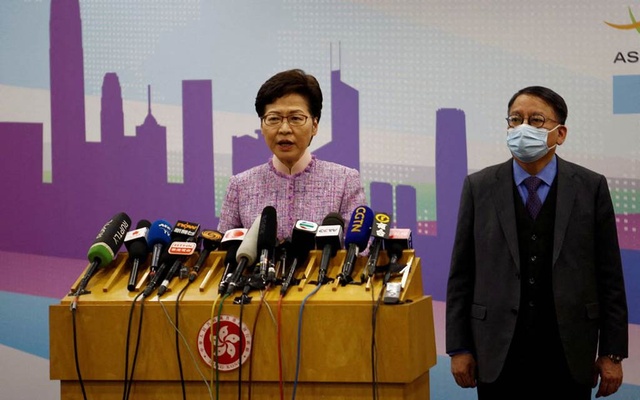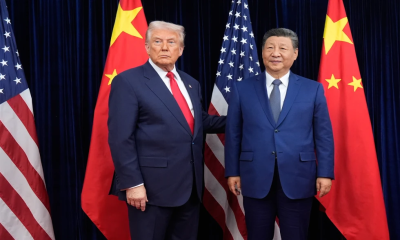A Hong Kong police raid on a pro-democracy media organisation and the arrest of seven people connected with it was aimed at seditious activity not the suppression of the media, the city government's leader said on Thursday.
About 200 police raided the Stand News office on Wednesday, froze its assets and arrested the seven current and former senior editors and former board members, for "conspiracy to publish seditious publications".
They were in police detention for some 30 hours after their arrest, awaiting formal charges or release. Under Hong Kong law, police can detain suspects for a maximum of 48 hours.
The raid was the latest crackdown on the media and on dissent in general in the former British colony since China imposed a tough national security law in the city last year aimed at putting an end to months of pro-democracy protests.
"These actions have nothing to do with so-called suppression of press freedom," Hong Kong leader Carrie Lam told reporters.
"Journalism is not seditious ... but seditious activities could not be condoned under the guise of news reporting."
Set up in 2014 as a non-profit organisation, Stand News was the most prominent remaining pro-democracy publication in Hong Kong after a national security investigation this year led to the closure of jailed tycoon Jimmy Lai's Apple Daily tabloid.
Stand News, an online publication, shut down hours after the raid and all of its employees were dismissed.
The Stand News website was not accessible on Thursday. Its London bureau chief, Yeung Tin Shui, said on Facebook his office had also closed.
The seven arrested included four former members of the Stand News board - former democratic legislator Margaret Ng, pop singer Denise Ho, Chow Tat-chi and Christine Fang - as well as former chief editor Chung Pui-kuen and acting chief editor Patrick Lam. Chung's wife, Chan Pui-man, formerly with Apple Daily, was re-arrested in prison.
Media advocacy groups, some Western governments, including Canada and Germany, and the UN Human Rights Office condemned the raid and arrests as a sign of erosion of press freedom in the global financial hub.
Hong Kong returned to Chinese rule in 1997 with the promise that wide-ranging individual rights, including a free press, would be protected.
US Secretary of State Antony Blinken called on Chinese and Hong Kong authorities to immediately release those arrested.
Lam, referring to Blinken's call, said that would be against the rule of law.
The Chinese foreign ministry's Hong Kong office said support for press freedom was being used as an excuse to disrupt stability in the city.
"Those who engage in activities that endanger national security and undermine the rule of law and public order under the cover of journalism are the black sheep tarnishing the press freedom and will be held accountable," it said in a statement.






-20260220065859.jpeg)
-20260219110716.webp)
-20260219054530.webp)






-20260222063838.webp)





















